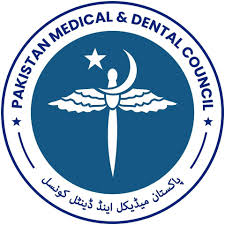Do studying resources impact Academic grades of Medical students? A cross-sectional survey from Karachi, Pakistan
Keywords:
Medical Education, Academic Grades, Studying ResourcesAbstract
Background: Medical education has undergone drastic changes by including new teaching methodologies with the inclusion of online reading portals along with textbooks. This study aimed to assess the studying resources opted by undergraduate medical students and the impact on their academic grades.
Subjects and methods: This cross sectional survey was conducted at Liaquat National Hospital and Medical College, Karachi, Pakistan from April to July, 2018. A total of 299 undergraduate medical students were recruited through purposive sampling technique. A self-administered structured questionnaire was developed for data collection. The grades obtained by the students during recent module exams were utilized for this study. These grades were then correlated with independent factors like studying resources opted by the students. SPSS version 22 was used for data entry and analysis.
Results: The students used textbooks and the internet for their studies, instead of one resource alone. YouTube was the most commonly accessed website. There were significant associations between the combined use of textbooks as well as internet and higher academic grades. Females and junior students were also significant predictors of better exam grades, although there was no difference in their studying resources.
Conclusion: The study highlighted the importance of the combined use of textbooks and internet as most useful in the attainment of better exam grades in medical education. Further experimental studies are required in order to study in detail regarding the various other factors impacting the grades of a student, apart from reading resources.
Downloads
Published
How to Cite
Issue
Section
License
The Journal of Fatima Jinnah Medical University follows the Attribution Creative Commons-Non commercial (CC BY-NC) license which allows the users to copy and redistribute the material in any medium or format, remix, transform and build upon the material. The users must give credit to the source and indicate, provide a link to the license, and indicate if changes were made. However, the CC By-NC license restricts the use of material for commercial purposes. For further details about the license please check the Creative Commons website. The editorial board of JFJMU strives hard for the authenticity and accuracy of the material published in the journal. However, findings and statements are views of the authors and do not necessarily represent views of the Editorial Board.


















